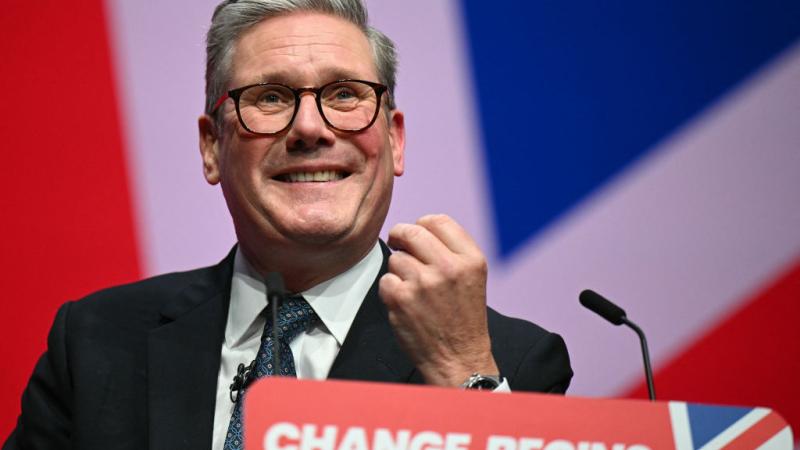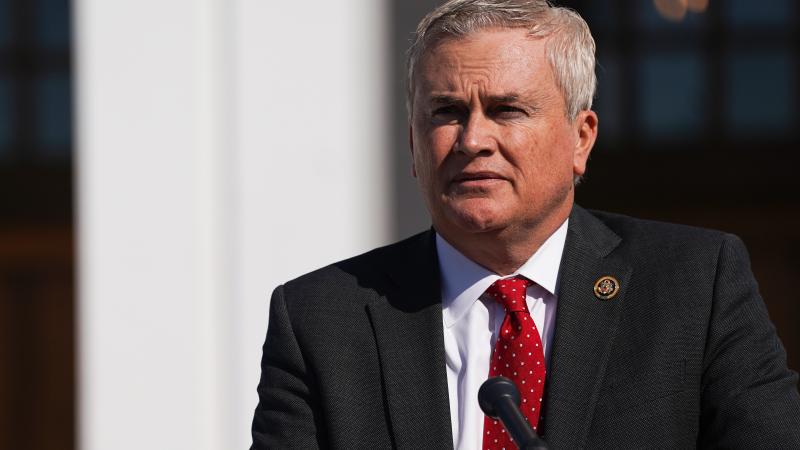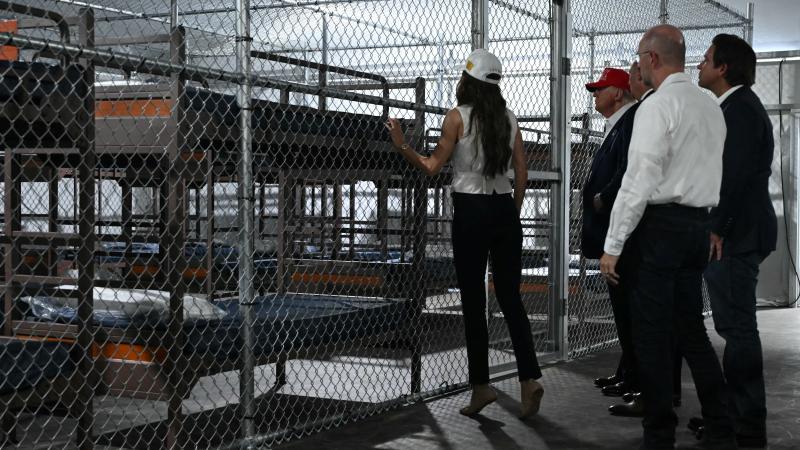Republican opposition appears poised to sink Schumer-Manchin energy deal
"If you’re now looking for Republicans to support and give you more cover than you have right now, you’re not going to find it with us."
A growing number of Republicans have voiced opposition to West Virginia Democratic Sen. Joe Manchin's energy permitting reform plan, spelling trouble for the lawmaker as he struggles to secure delivery on promises from his own party's leadership to back the effort.
The lawmaker's popularity has nosedived after his seemingly foolish deal in which he supported a major Democratic spending package in exchange for a separate reform on energy projects. While Manchin delivered on his end, his party appears poised to renege on its promise, leaving Manchin with little room to maneuver. Republicans meanwhile, have declined to support Manchin in the plan, despite their previous advocacy for similar reforms, due in part to frustration with the Blue Dog Democrat for his seemingly naive capitulation on a string of Democratic agenda items.
"If you're now looking for Republicans to support and give you more cover than you have right now, you're not going to find it with us," Sen. John Barrasso, R-Wyo., said, according to The Hill.
Manchin announced in late July that he and Senate Majority Leader Chuck Schumer had reached an agreement by which the West Virginia Democrat would support the $740 billion Inflation Reduction Act in exchange for a separate energy permitting reform plan that would expedite the approval of energy projects in his state. Specifically, Manchin sought to curb local review of such projects, a process that typically prolongs the approval process.
The West Virginia Democrat ultimately upheld his end of the bargain and voted for the spending package, but now, fierce opposition from House Democrats and some senators on the left side of the aisle has raised doubts about Schumer's ability to deliver his end. Over 70 Democratic members of the lower chamber have signed on to a letter asking House Speaker Nancy Pelosi not to honor the agreement since the lower chamber was never party to it in the first place.
Manchin previously highlighted prior Republican support for such a measure, though the circumstances have left many hesitant to commit to his plan. A late August survey revealed Manchin to be the United States' least popular politician, with just 11% of respondents expressing a positive view of him.
In a Tuesday interview with Fox News's Brett Baier, Manchin expressed optimism that Republicans would line up to support his plan and ultimately send it to President Joe Biden's desk. "My Republican friends, I really truly, in my heart of hearts, believe that I have enough great common sense Republicans" to pass the plan, he said. Baier countered by highlighting Republican concerns that they had not seen enough of Manchin's plan and created their own version.
"So far what Joe's put out is a one-page template... and like I said, it's not very ambitious in my view," said Sen. Kevin Cramer (R-N.D.), per The Hill. "It's not enough for me to get to 'yes,' because frankly I don't know why I would want to facilitate mediocrity."
Moreover, Manchin's junior senator, Republican Shelley Moore Capito, W.Va., has introduced a competing bill to pass energy permitting reforms, which has drawn some Republican support away from the Manchin plan.
Schumer, for his part, has vowed to deliver on his promise to Manchin by including the reform plan as a rider on a continuing budget resolution, which he hopes would line up Democratic support given the presence of other agenda items in the larger measure. Lawmakers in both parties, however, have disparaged that approach.
"I don't know how a CR vote will go if it includes the permitting rider, but the opposition is loud and only getting louder," said Arizona Democratic Rep. Raul Grijalva, chairman of the House Natural Resources Committee.
"I think putting it on a CR is problematic. It's a major policy issue," Maine GOP Sen. Susan Collins said, per The Hill.
Democrats currently maintain narrow control of the 50-50 Senate, though the absence of Republican support and internal opposition in the upper chamber have likely doomed the deal to failure. In the House, Democrats enjoy firmer control, though not enough to overcome the more than 70 members of their own party opposing the plan without significant crossover support from the GOP.
















